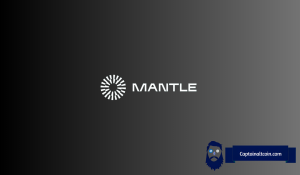Here’s Why Challengers Are the Backbone of the Upcoming Zero Knowledge Proof (ZKP) Crypto Presale
In a crypto ecosystem flooded with speculation and inflated narratives, Zero Knowledge Proof (ZKP) introduces a refreshing shift: an architecture that pays users for getting the truth right. But behind the protocol’s trustless infrastructure lies a critical mechanism that ensures its integrity, the Challengers. These participants aren’t just passive observers; they are proactive validators tasked with identifying false claims and activating the network’s self-correcting logic.
This article explores how Challengers function within the Zero Knowledge Proof (ZKP) blockchain, what their role means in the broader context of decentralized truth, and why those seeking to participate in the upcoming crypto presale might want to consider this role when the whitelist opens.
The Foundation of the Challenger Role
To understand the importance of Challengers, one must first understand what Zero Knowledge Proof (ZKP) sets out to solve. At its core, ZKP uses a structure where users can post factual claims by staking tokens. However, without a mechanism to hold claims accountable, the system could easily be gamed.
This is where Challengers come in.
In the ZKP crypto protocol, any claim submitted by a user enters a pending state. During this phase, others in the system can challenge the claim’s validity by staking tokens of their own. If a challenge is issued, the protocol initiates a Verifier Auction, a decentralized selection of third-party verifiers who evaluate the claim using publicly available information and cryptographic tools.
If the challenge is upheld, the original claimant loses their stake, and the challenger is rewarded. If the claim stands, the challenger loses their stake. This zero-sum staking model ensures that only the most accurate and verifiable claims survive.
In essence, Challengers form the immune system of the Zero Knowledge Proof (ZKP) blockchain, constantly monitoring for misinformation and neutralizing it at the protocol level.
Challengers Incentivize Accuracy
What makes the ZKP crypto coin ecosystem remarkable is its design: it doesn’t rely on a central authority or moderator to enforce truth. Instead, it relies on a financially motivated crowd. Challengers are incentivized to act, not just ideologically, but economically.
Here’s how this creates a network-wide benefit:
- Truth is profitable: By challenging inaccurate claims, Challengers are financially rewarded, creating a reason to stay vigilant.
- Falsehood is expensive: Anyone posting untrue information risks not just reputation but also staked tokens.
- Protocol integrity improves over time: Each successful challenge sharpens the system, teaching participants what the network considers “verifiable.”
This is crucial in a landscape where best presale crypto projects often overpromise and underdeliver. Zero Knowledge Proof (ZKP) offers a clear framework where promises must be backed with proof, or they will be actively disputed.
As a result, the protocol is designed to evolve as a trustworthy knowledge layer. And it’s the Challengers, not the claimants, who ultimately keep it honest.
Early Entry = First Mover Advantage
The upcoming crypto presale for Zero Knowledge Proof (ZKP) presents an opportunity for early participants to not only acquire tokens but also establish themselves within a high-leverage role in the protocol.
While many new crypto presales focus on NFT hype or basic staking mechanics, Zero Knowledge Proof (ZKP) offers a more impactful alternative: contribute to network honesty, earn rewards, and shape protocol standards.
Being a Challenger early on means:
- Lower competition for claims to review and challenge
- Higher reward opportunity due to less protocol saturation
- Increased visibility in the community as a trusted truth-seeker
And because the system relies on staking to initiate challenges, the earlier one accumulates ZKP crypto coins, the more influential they become in future disputes.
For those watching the best crypto presale 2025 opportunities, this role-based economic layer offers far more than passive gains. It introduces the chance to build real network authority and earn based on reputation and performance.
Challengers Will Shape the ZKP Ecosystem
The crypto world is entering a new phase. Speculative tokens are being replaced by utility-backed ecosystems, and Zero Knowledge Proof (ZKP) is emerging as one of the few platforms that doesn’t just talk about transparency, it builds it into its code.
As the whitelist window approaches, early supporters are being invited to join the protocol not just as buyers, but as verifiers of truth. The Challenger role offers a rare mix of ethical alignment and financial upside, allowing users to keep the system honest while securing real protocol influence.
For those looking to participate in a project that rewards logic, integrity, and vigilance, Zero Knowledge Proof (ZKP) may be one of the top presale crypto opportunities of the year.
But unlike other tokens that reward holding, this one rewards doing. And the ones who act, the Challengers, will be remembered as the force that helped define the future of decentralized credibility.
Disclaimer: LiveBitcoinNews does not endorse any content on this page. The content depicted in this Press Release does not represent any investment advice. LiveBitcoinNews recommends our readers to make decisions based on their own research. LiveBitcoinNews is not accountable for any damage or loss related to content, products, or services stated in this Press Release.
The post Here’s Why Challengers Are the Backbone of the Upcoming Zero Knowledge Proof (ZKP) Crypto Presale appeared first on Live Bitcoin News.
You May Also Like

Here’s Why Mantle (MNT) Price Is Pumping Today

Cashing In On University Patents Means Giving Up On Our Innovation Future
